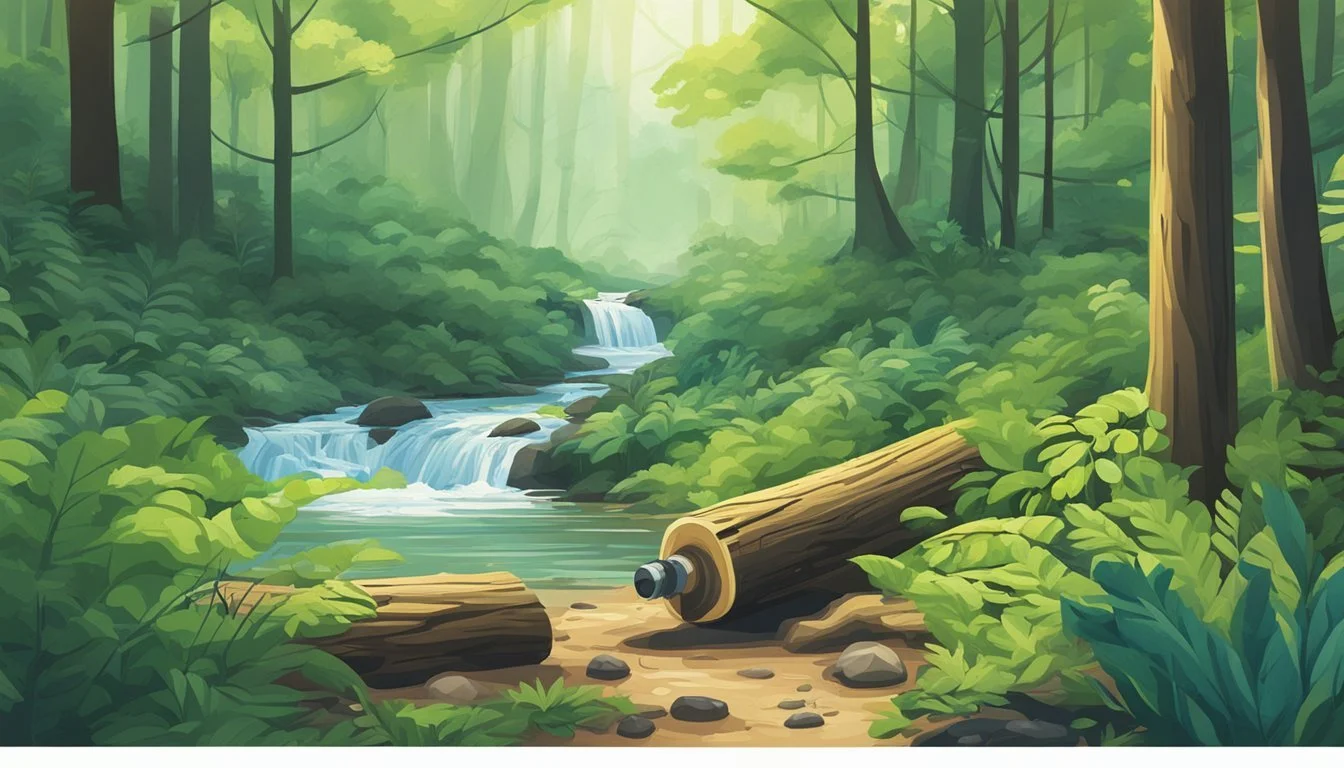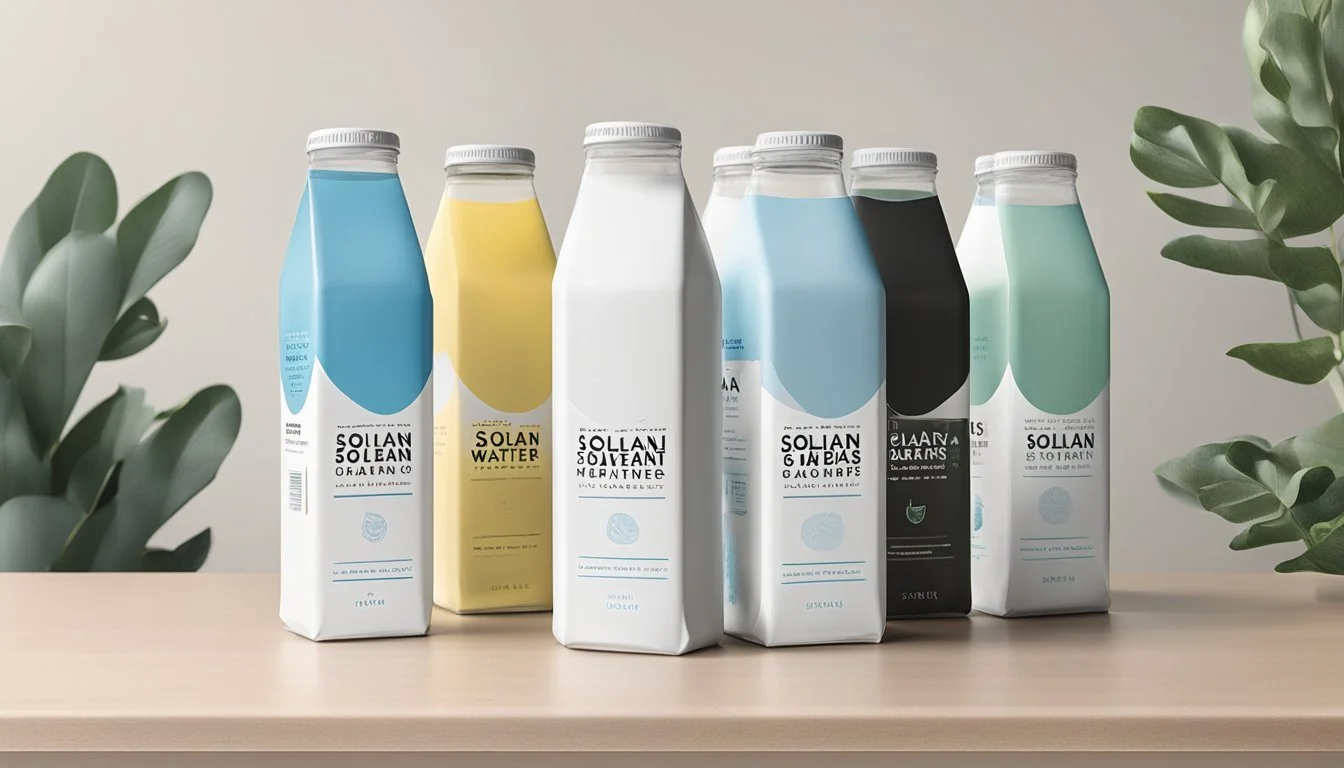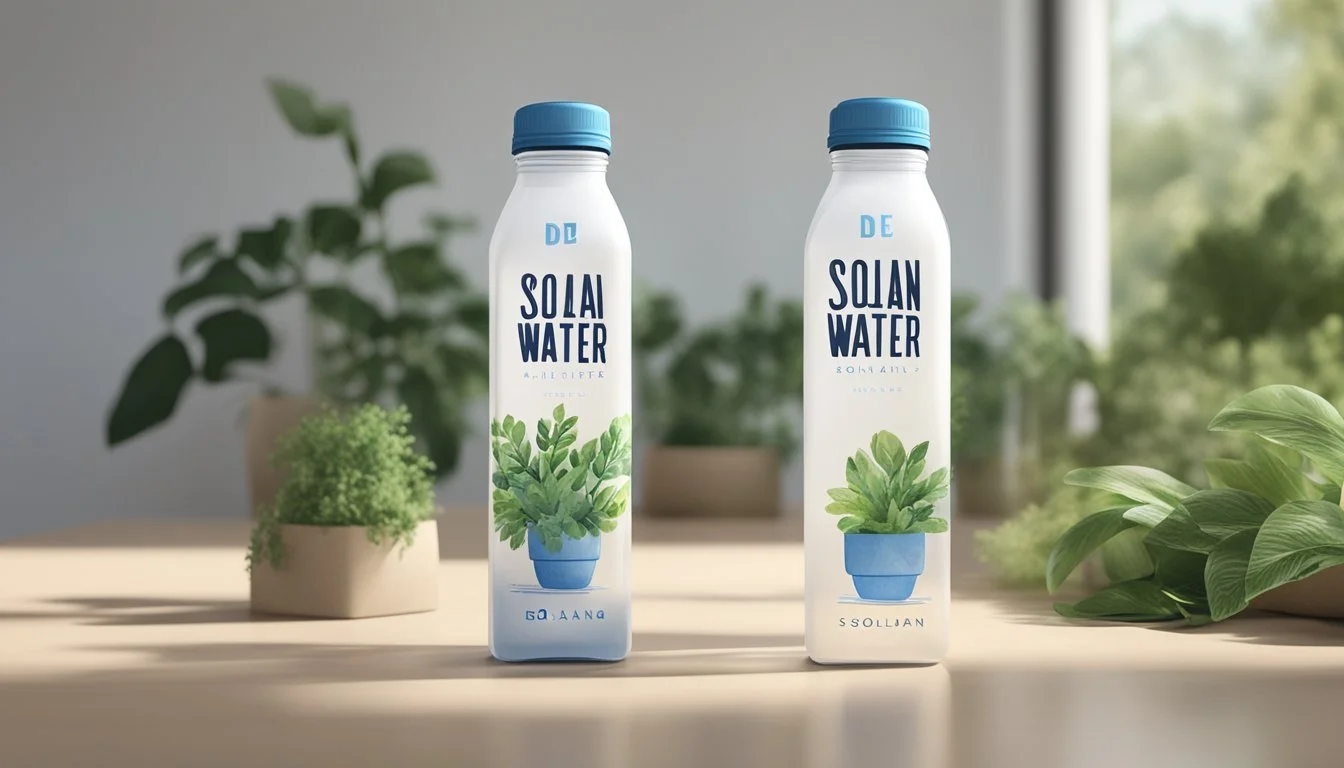Boxed Water vs. Solan de Cabras
A Clear Comparison of Quality and Taste
Boxed Water and Solán de Cabras are two leading brands in the bottled water market, each offering unique benefits and experiences. Boxed Water aims to provide a sustainable alternative to traditional plastic bottles, packaging their water in cartons made primarily from renewable materials. This eco-friendly approach appeals to environmentally-conscious consumers looking to reduce their carbon footprint.
In contrast, Solán de Cabras is known for its premium quality and distinctive cobalt blue glass bottles. Originating from Spain, the brand focuses on purity and taste, drawing its water from a renowned natural spring. For those prioritizing taste and luxurious presentation, Solán de Cabras stands out as the superior choice.
When considering environmental impact and sustainability, Boxed Water emerges as the better option. Both brands excel in different areas, catering to varied consumer preferences. Understanding these distinctions helps consumers make informed choices based on their values and needs.
History and Mission
Boxed Water and Solán de Cabras have distinct origins and unique missions that reflect their brands and focus on sustainability.
Origins of Boxed Water and Solán de Cabras
Boxed Water Is Better was founded in 2009. It was the first company to sell water packaged in a box, aiming to reduce the environmental impact of plastic bottles. This innovation quickly positioned the brand as a leader in eco-friendly packaging.
Solán de Cabras has a much longer history. Its story begins over 3,600 years ago in the Serranía de Cuenca region of Spain. This natural spring water has been cherished for centuries, known for its purity and mineral content.
Branding and Environmental Statements
Boxed Water Is Better emphasizes sustainability. The company uses cartons made of 92% plant-based materials, promoting a significant reduction in plastic use. Their packaging contains 74% paper, 1% aluminum, and 25% plastic film, balancing sustainability with functionality.
Solán de Cabras focuses on purity and authenticity. The brand highlights its ancient origins and natural spring source, which underscore its high quality. Despite its traditional roots, Solán de Cabras actively engages with modern sustainability efforts and incorporates eco-friendly practices in its bottling processes.
Product Overview
Comparing Boxed Water and Solán de Cabras involves evaluating their packaging materials and design, as well as the quality and source of the water itself. Each brand presents unique benefits and features.
Packaging Materials and Design
Boxed Water uses cartons primarily composed of sustainable paper, accounting for 74% of the material. The rest includes 25% plastic to ensure waterproofing and a small percentage of aluminum. The design mimics a traditional milk box, which is both practical and aesthetically pleasing. The focus on sustainable materials makes it a notable option for environmentally conscious consumers.
Solán de Cabras opts for elegant blue glass bottles. These bottles are fully recyclable and add a touch of sophistication. While not as environmentally friendly as paper, glass does not affect the water's taste and ensures purity. The design reflects the brand’s commitment to quality and purity.
Water Quality and Source
Boxed Water is known for its neutral taste with a slight crispness, making it refreshingly unique among water brands. The water undergoes multiple filtration processes to maintain purity. This brand is particularly attractive for those seeking a reliable and crisp everyday water source.
Solán de Cabras traces its origin to natural springs in the Serranía de Cuenca in Spain. It is celebrated for its natural mineral content and purity, owed to its ancient sources. Packaged in glass bottles to preserve its quality, it offers a distinct and premium taste. This makes it a preferred choice for those who appreciate natural spring water with a rich history.
Environmental Impact
The environmental impact of bottled water is a significant concern. Boxed Water and Solán de Cabras each have distinct approaches to sustainability and carbon footprint reduction.
Sustainability Efforts and Innovation
Boxed Water is notable for its packaging innovation. The company claims its cartons are 92% plant-based, using renewable materials to minimize environmental harm. This innovation targets the reduction of single-use plastic and aims to promote a more sustainable lifestyle. Unlike traditional plastic bottles, these cartons can have a lower impact if recycling facilities are available.
Solán de Cabras, on the other hand, emphasizes the sourcing purity of their water. Originating from natural springs, their production process is designed to minimize environmental disruption. Solán de Cabras also focuses on bottling practices that seek to reduce contamination and maintain water integrity, although its primary packaging material remains traditional plastic.
Carbon Footprint and Recycling Practices
Boxed Water's carbon footprint is significantly lower than conventional options. Studies by the company highlight a 50% reduction in the impact on ozone layer depletion and 33% lower smog emissions compared to aluminum options. This demonstrates an effort to curtail the overall planet's pollution.
Despite using plastic, Solán de Cabras has committed to reducing their carbon footprint by optimizing their logistics and manufacturing processes. They promote recycling through consumer education, encouraging the return and proper disposal of their bottles to mitigate pollution and microplastic contamination. However, the continued use of plastic presents ongoing challenges in waste management and recycling system efficiency.
Health and Safety Considerations
When evaluating Boxed Water and Solán de Cabras, it is vital to assess aspects like mineral content, health benefits, safety measures, and purity standards.
Mineral Content and Health Benefits
Boxed Water undergoes extensive purification processes like ultraviolet light treatment, carbon filtration, and reverse osmosis. This results in water that is free of impurities but also lacks naturally occurring minerals.
Solán de Cabras, sourced from the Serranía de Cuenca, is rich in minerals. It contains calcium and sodium, contributing to a balanced taste and offering potential health benefits. Calcium is essential for bone health, while sodium aids in maintaining electrolyte balance.
The distinct mineral composition can make Solán de Cabras more appealing for those seeking wellness benefits beyond basic hydration.
Safety and Purity Standards
Boxed Water meets stringent safety standards through its purification techniques, which ensure the removal of contaminants. The packaging, predominantly made from sustainable paper, is BPA-free and recyclable, adding an extra layer of safety for consumers.
Solán de Cabras also adheres to rigorous safety protocols, tackling any potential impurities from its natural source with controlled bottling processes. The company’s long history and focus on natural purity underline its commitment to delivering safe drinking water.
Both brands prioritize quality and safety, making them reliable choices for health-conscious consumers.
Consumer Experience
When comparing Boxed Water and Solán de Cabras, the taste profile and user convenience are paramount. Consumers have voiced their varying experiences regarding flavor nuances and practicality for daily use.
Taste Profile and Water Sommelier Insights
Boxed Water maintains a clean, crisp taste that many describe as refreshing. Its neutral flavor makes it a popular choice for those who prefer subtle water profiles. Some notes from water sommeliers indicate a slight sweetness, though it remains predominantly pure.
Solán de Cabras offers a slightly mineral-rich taste, reflective of its natural spring source. Sommeliers note a velvety texture with a mild mineral finish. This makes it appealing to consumers who appreciate water with character and substance.
Convenience and Accessibility
Boxed Water distinguishes itself with its eco-friendly packaging, composed of 74% paper and plant-based materials. Its design is both lightweight and portable, making it easy to carry for those on the go. Additionally, the cartons are recyclable and can be closed after opening, providing practical options for reuse.
Solán de Cabras comes in a stylish, blue bottle, which is reusable and visually appealing. It caters to individuals who prefer a durable container for personal use. However, it might be slightly heavier, affecting its convenience for some users.
These differences address consumer preferences in taste and functional daily use, offering varied experiences based on individual needs and values.
Market Presence and Availability
Both Boxed Water and Solán de Cabras have established significant market presence through strategic distribution channels and collaborations. Each brand has also garnered various awards, contributing further to their reputation.
Distribution and Retail Partnerships
Boxed Water is widely available in numerous retail outlets. Notable partners include Whole Foods Market and Target, which help amplify its reach. Additionally, Boxed Water has a presence onboard Alaska Airlines, offering passengers a sustainable hydration option during flights.
Solán de Cabras, a premium Spanish brand, primarily focuses on upscale retail and fine dining establishments. They also distribute through specialty stores and online platforms like Amazon. This positioning aligns with its premium image, ensuring availability in locations where consumers expect high-quality products.
Collaborations and Awards
Boxed Water has been involved in collaborations with various environmental organizations. These partnerships include water relief efforts and sustainability campaigns, positioning the brand as a leader in eco-friendly initiatives. Boxed Water has also received awards for its innovative packaging, which is 92% plant-based, setting a benchmark in the industry.
Solán de Cabras is recognized in the Fine Water community and has earned awards for its purity and quality. These accolades bolster its reputation and appeal among discerning customers. Its collaboration with luxury brands and events further enhances its prestige.
Their awards and partnerships highlight their strengths in different aspects, from sustainability for Boxed Water to premium quality for Solán de Cabras.
Comparative Analysis
Cost, value, and environmental impact are important factors when choosing between different bottled water brands. This section explores these factors in detail for Boxed Water and Solán de Cabras.
Cost vs. Value
Boxed Water offers an alternative to traditional plastic bottles with its use of sustainable paper, aluminum, and plastic film packaging.
While the price may be slightly higher due to the eco-friendly materials, consumers may find value in the reduction of environmental impact. The design also appeals to those looking for an environmentally conscious choice.
Solán de Cabras water is renowned for its purity and history, making it a premium product. Although it may carry a higher price tag, the quality and taste of the water, along with its longer history, justify the cost for many consumers.
Both brands provide a balance of cost and value, though Boxed Water emphasizes sustainability, while Solán de Cabras focuses on premium quality.
Future Trends and Predictions
In the coming years, trends in bottled and boxed water are expected to shift significantly. Sustainability will be at the forefront as consumers demand more environmentally responsible options. Innovations such as plant-based plastic and carton-based packaging are likely to gain popularity.
Renewable materials will play a crucial role. For instance, Boxed Water's use of 92% plant-based materials shows a commitment to reducing environmental impact. Such approaches are predicted to become more common across the industry.
Canned water and aluminum bottles are also on the rise. These alternatives are seen as viable replacements for single-use plastic bottles, which have a notorious environmental footprint. Besides being reusable, aluminum is infinitely recyclable.
The use of glass bottles might also see an increase, though they are heavier and less convenient for transportation. Still, glass is preferred for its purity and ability to be reused multiple times without degrading quality.
It's essential to consider greenwashing. As companies race to appear more sustainable, some may make misleading claims about their environmental benefits. Consumers will need to stay informed and critical of such marketing practices.
Solán de Cabras, known for its pure and natural source, might leverage its history and shift towards more eco-friendly packaging solutions. They could potentially explore plant-based plastics or aluminum bottling.
These trends indicate a move toward minimizing the ecological footprint of bottled water. Brands that successfully innovate and utilize sustainable practices will likely lead the market.
Future predictions hinge on continued advancements in recycling and material science, making sustainable bottled water more accessible to consumers. These developments reveal an industry in transition, moving away from outdated practices towards a more eco-conscious approach.
Conclusion
Boxed Water and Solán de Cabras each have their own merits.
Boxed Water stands out for its eco-friendly packaging. Its cartons are made from sustainable paper, aluminum, and plastic that is fully recyclable. This helps reduce plastic pollution and supports reforestation foundations. The Ocean Blue Project and other art projects also benefit from Boxed Water's environmental initiatives.
Solán de Cabras is known for its pure and authentic taste. Originating from the thunderstorms in Serranía de Cuenca, this water's story spans millennia.
A key difference lies in their packaging. Boxed Water uses a 92% plant-based carton, while Solán de Cabras uses traditional plastic bottles. The use of plastic bottles, while convenient, raises concerns about plastic pollution and CO2 emissions. On the other hand, boxed water cartons mitigate these issues, making them a more sustainable choice.
On the taste front, Solán de Cabras' natural purity may appeal to connoisseurs. Boxed Water, however, offers a crisp and refreshing alternative that eco-conscious consumers may prefer.
Ultimately, the choice between Boxed Water and Solán de Cabras may depend on priorities. For those focused on sustainability and environmental impact, Boxed Water is a strong contender. For those who value tradition and taste, Solán de Cabras offers a compelling experience.









